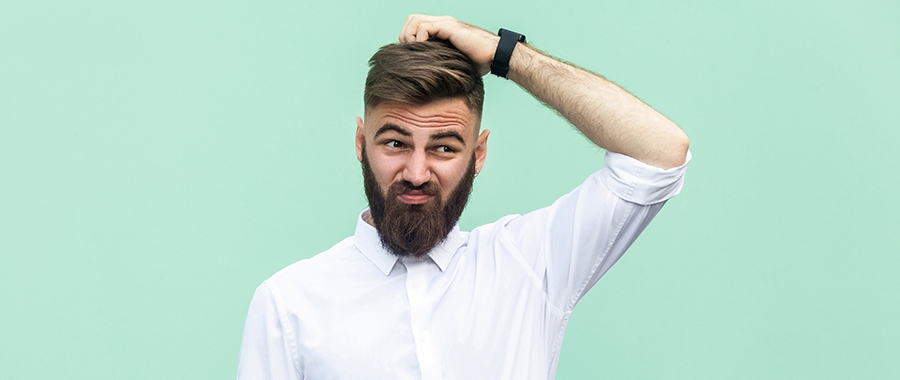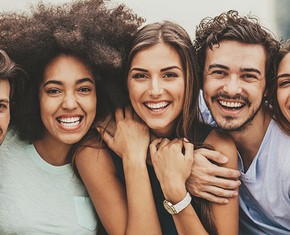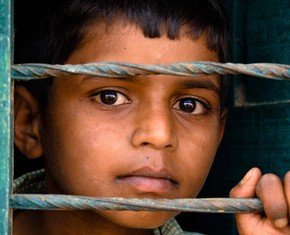The views expressed in our content reflect individual perspectives and do not represent the authoritative views of the Baha'i Faith.
After some prayers and late night conversations with my wife Lisa I felt inspired towards some deeper reflections on racism, and how complicated and insidious it can be for all of us.
I don’t see myself as a white male born in Manhattan, New York—but it’s how others perceive me. I’ve been blessed to subsequently have extensive experiences of living with Indigenous peoples in various communities, and it has been a real eye-opener. It has made me who I am. While internally, I identify more strongly with my Indigenous friends and adopted families, strangers who interact with me don’t see that immediately. Instead, it’s the white-American-male outer reality which determines their first impressions and subsequent, mostly positive, interactions.
If you asked me if I was racist I would admit that I do find my mind making generalizations about people based on their skin color and my assumptions about their place of origin. Isn’t that such a noble and humble admission? (slight sarcasm).
But lately I’ve realized there are much deeper forms of racism I can take responsibility for.
Increasingly, I’ve been reflecting on my participation in racism and my responsibility in supporting it as a systemic practice in all our social institutions. A surprising number of white people don’t understand how racist they are, because they assume racism means consciously feeling negative about another person because of their skin color. They truthfully examine their own feelings and see they feel positively towards members of other races, and reason that therefore they are off the hook when it comes to accountability for racism.
But again, racism isn’t just a conscious feeling. Shoghi Effendi, the Guardian of the Baha’i Faith, refers to white racism as a “usually inherent and at times subconscious sense of superiority:”
Let the white make a supreme effort in their resolve to contribute their share to the solution of this problem, to abandon once for all their usually inherent and at times subconscious sense of superiority, to correct their tendency towards revealing a patronizing attitude towards the members of the other race, to persuade them through their intimate, spontaneous and informal association with them of the genuineness of their friendship and the sincerity of their intentions, and to master their impatience of any lack of responsiveness on the part of a people who have received, for so long a period, such grievous and slow-healing wounds. – Shoghi Effendi, The Advent of Divine Justice, p. 40.
So, if by definition we are not aware of it, how on Earth can we say we are not racist? That sense of superiority is not just a feeling, but also derives benefit from the way our social systems in some countries can privilege whiteness over other races. Where I live, in every single interaction I experience as a white person, I willingly accept and benefit from my whiteness. It’s my normal. Simple interactions like receiving a positive greeting when getting on a bus, or sitting next to someone greeted with a smile, or going into a club, or growing up in secure housing, getting an education, having the choice and support for higher education, benefitting from my parents’ and grandparents’ having been home owners who were given land and homes because my white grandparents fought in WWII, while their black and Indigenous comrades weren’t given those same government handouts.
So while I’m not responsible for the past of slave owners and the massacres of Native people, I do benefit from that continuing racism and its long-term societal effects now. In that way, I am complicit in unconsciously supporting the status quo. When I pause to consider this it is so eye-opening, and helps me to contemplate actions I can take in being accountable.
Once I realized this is a dynamic of my racism, I could see that my racism manifests in two ways:
1. either I don’t remain vigilantly mindful of that reality, except in protected social situations that benefit my expressing it and make me feel better about myself or;
2. my racism is about knowing how this complicity benefits myself, but not taking any real steps to contribute to the transformation of the system.
There are many ways to contribute to transformation. Sharing my wealth with others is one really simple way, but there are so many other potential actions that it becomes exciting to contemplate. I can implement conscious actions to heal that racism within myself—and I can hear my ancestors cheer me on, because they are not able to go back and change the past caused by their own actions.
The only way such reconciliation can take place for my ancestors and myself is in my own deeds, which can arise from this growing mindfulness of my own subconscious sense of superiority.
















Comments
Sign in or create an account
Continue with Googleor